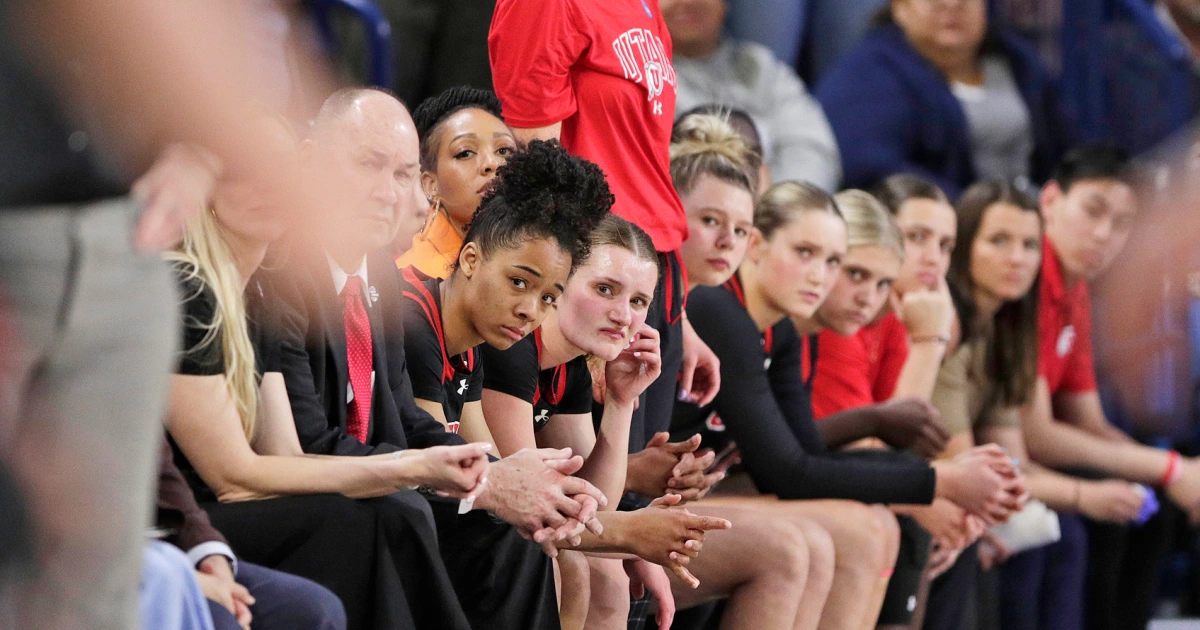BOISE, Idaho — An 18-year-old accused of shouting a racial slur at members of the Utah women’s basketball team during the NCAA Tournament will not face hate crime charges, according to a northern Idaho prosecutor. The deputy attorney for the city of Coeur d’Alene announced on Monday that the offensive remark didn’t meet the legal standard for a hate crime under Idaho’s malicious harassment law.
The prosecutor, Ryan Hunter, noted in a charging decision document that while the use of the racial slur was “detestable” and “incredibly offensive,” there was no evidence to suggest that the man intended to threaten physical harm to the team or damage their property. This means that his conduct is protected by the First Amendment, Hunter wrote.
The University of Utah women’s basketball team was in Coeur d’Alene in March during the NCAA Tournament, which was held nearby in Spokane, Washington. The team members were walking from their hotel to a restaurant when someone in a truck yelled a racist slur at them. After they left the restaurant, the same truck came by again, with the occupants revving the engine and shouting at the players, according to Tony Stewart, an official with the Kootenai County Task Force on Human Relations.
The incidents were so disturbing that they made the team worry about their safety, Utah coach Lynne Roberts said at the time. The region has had a history of far-right extremism, with the Southern Poverty Law Center noting that at least nine hate groups were active in the Spokane and northern Idaho area in 2018.
Roberts described the incidents as “incredibly upsetting” for her team, which was unaccustomed to such blatant racism. The University of Utah declined to comment on the prosecutor’s decision not to pursue charges.
Hunter stated that police interviewed nearly two dozen witnesses and reviewed hours of surveillance video but couldn’t gather enough evidence to bring any charges. While several credible witnesses reported hearing a racial slur as the team walked to dinner, they differed in their descriptions of the vehicle and the person who yelled it. The surveillance videos also didn’t capture any clear audio.
Despite the lack of evidence connecting the two encounters, police were able to identify the occupants of a silver passenger vehicle involved in the second incident. An 18-year-old high school student in that vehicle admitted to shouting a slur and an obscene statement at the team. However, he claimed he did it because he thought it would be funny, which did not indicate an intent to threaten or cause harm, Hunter wrote.
Hunter’s office considered charging the man with malicious harassment, disorderly conduct, or disturbing the peace but ultimately decided against it due to lack of evidence. Idaho’s hate crime law requires proof of specific intent to threaten or cause harm, and the other charges also require specific conditions related to noise levels and timing.
Hunter concluded his decision by condemning the racist and misogynistic nature of the slur, emphasizing that the First Amendment still protects even hateful or offensive speech. Aaron Terr, a public advocacy director for the Foundation for Individual Rights and Expression, explained that while hateful speech is protected, true threats and incitement to violence are not.
The outcome of the case underscores the complex balance between freedom of speech and addressing hate speech, with legal protections extending to offensive comments that do not explicitly threaten physical harm.















































